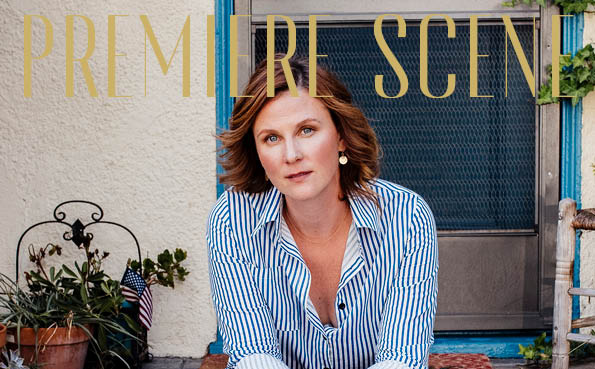
By Claire Bueno
For an actor there is nothing more terrifying and exhilarating than performing live, but the opportunity to connect with the audience brings out a multitude of rewards. For Katierose Donohue Enriquez her sell out show the Queen of Fishtown is the gift that keeps on giving. It’s an exciting time for Donohue Enriquez as she brings her one woman show to the Edinburgh Fringe Festival.
I was lucky enough to interview the Philadelphia born actor, comedian, writer to talk about the inspiration for writing the Queen of Fishtown, performing live and the many themes that makes this show globally accessible.
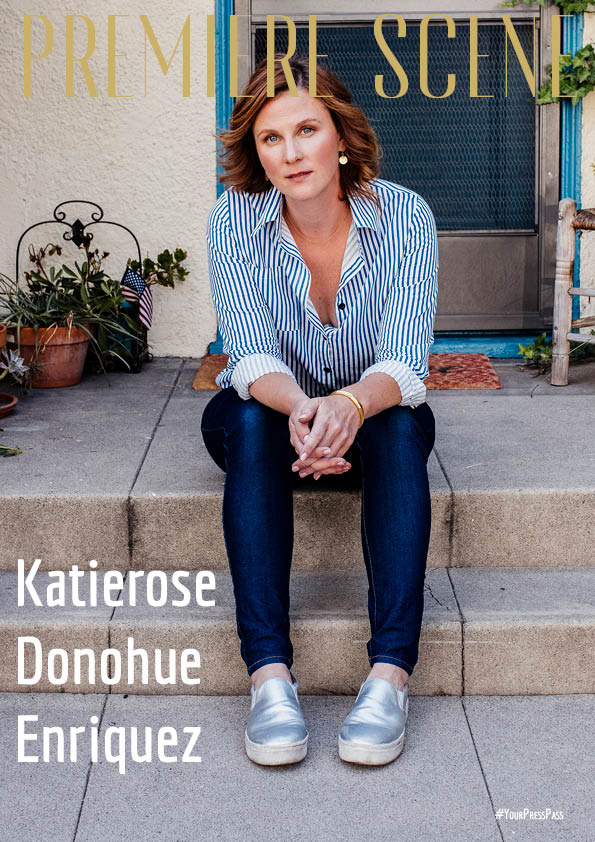
Tell us about the Queen of Fishtown?
I’m originally from the area, both my parents grew up right around the neighbourhood that is Fishtown. Fishtown is part of a bigger neighbourhood called Kensington. In Philly the neighbourhoods are very specific and Fishtown was a neighbourhood that was not desirable for 80 years. It was mostly Irish and Polish immigrants who fished and packed fish, it was a kinda nasty neighbourhood. Kensington and Allegheny is like an intersection known for, I say it in the show, drug addicts and hookers. My family spent their whole lives trying to get out of there. Then in 2005/2006 my cousin brought a house in Fishtown. And everyone was like, “Oh Stephanie’s lost her mind. She’s fully lost it.” And she’s like, “No you guys! It’s cool. It’s on the come up, it’s a hot neighbourhood.” No one believed her. And then about 10 years later, 2017 or 2018 Forbes Magazine said that, ‘Fishtown was the hottest neighbourhood in America.’ Which is absurd (laughs) and so obviously Fishtown is big part of the show. They say write what you know, I know my family is from there. This isn’t anyone in particular, it’s a made up character, but she grew up in Fishtown, her family’s lived there for generations. The whole neighbourhood has changed around her and the show starts before I enter when the audience is coming in, there’s a big projection behind me where you see a line of row homes and the two on either side are these crazy monstrosity, new construction and then in the centre is just a traditional row home from 1917, and that’s her house (laughs). The
neighbourhood serves as a mirror to what’s going on in her own life. Everything’s changing, neighbourhood has been gentrified, her kids are growing up, she’s turning 40, she has a couple of health issues that pop up and she’s not thrilled about it to say the least (laughs).
What was the inspiration for writing it?
I went to graduate school for acting one million years ago, when I got out I was so hungry for comedy. Part of my graduate program was in Russia, we were doing Chekhov at the Mosco Art Theatre, then I graduated and I was like, ‘I need something fun!’ I took a class at Upright Citizens Brigade, New York then moved to Los Angeles shortly after. I don’t know if you’ve ever heard of The Groundlings? It’s a breeding ground for Saturday Night Live and it’s sketch, improv and very character based. I did the program there and then got invited into the Sunday Company where you write a brand new show every week. When I was in the company I wrote a Philly character who eventually is the inspiration for this. It was a one off, you write five, six sketches a week and see what got in the show and then whatever is in the show, you see what works. During the pandemic, my husband is a writer, he was a machine, churning out screenplays and pilots and I was just baking bread like everyone else (laughs). He said, “Well if you have a sketch that you like it might serve as a good cold open.” So I wrote a pilot in two sittings. I finished the pilot and I was like, ‘I think this is the best thing I’ve written, I’m very proud of this.’ It a dramedy, it’s a comedy, a lot of comedy because the main character, that’s her defence mechanism. There’s a line in the show where I say, “We’re either laughing or we’re screaming.” If you’re from Philadelphia you’re either laughing or your screaming because the alternative is too soft. She makes jokes whenever things get really and that’s part of her journey. It’s ok to feel the things you feel (laughs).
What’s interesting about what you’re saying is that it makes her very relatable. Are you conscious that you’ve made this not a Philly centric show that are themes that are accessible to a wider audience?
100% and I’ve been doing the show here in Hollywood which there are a lot of people who come to the show who know nothing about Philadelphia which is good because when I take it to London and to the Edinburgh Fringe, people are not going to know Philadelphia. Yeah I think it’s absolutely relatable, it’s about a woman who is trying to remain authentic to herself despite inevitable change. And the thing is, she has experience with it because her neighbourhood just did it and she’s still standing. So there really is holding a mirror to what’s going on in her life, but I’ve have people come to the shows, like, “This reminded me of my aunt from Wisconsin, oh my God.” So I think that the Philly of it all is the fun, it’s just fun. It’s a very unique place, it’s interesting and it’s ripe with its own colours, it’s a very vibrant place. And Philly is also the perfect setting for it because she’s frustrated, she’s angry and Philadelphia is pretty frustrated (laughs). People they only think of Philadelphia as bad sports and bad food. And literally the United States of America doesn’t exist without Philadelphia. I mean the Declaration of Independence, Independence Hall, the Constitutional Convention, these things are synonymous with Philly, yet the Dallas Cowboys are America’s team, everyone’s mad about it, you know (laughs). There’s a saying in Philly, ‘Nobody likes us and we don’t care.’
Sounds like you have a real affinity with Philadelphia?
I love Philadelphia, it is city of passionate people who I think makes them relatable.
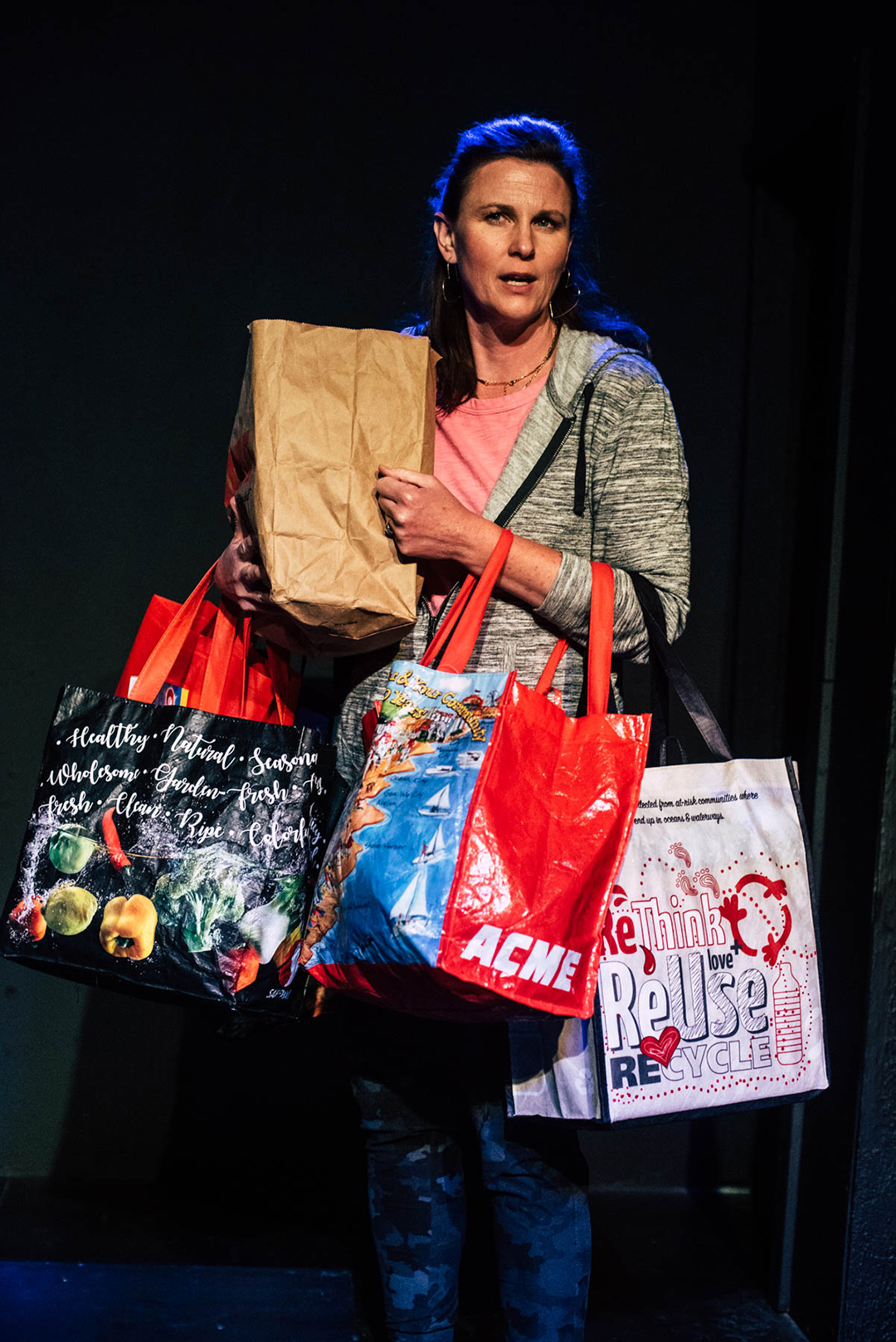
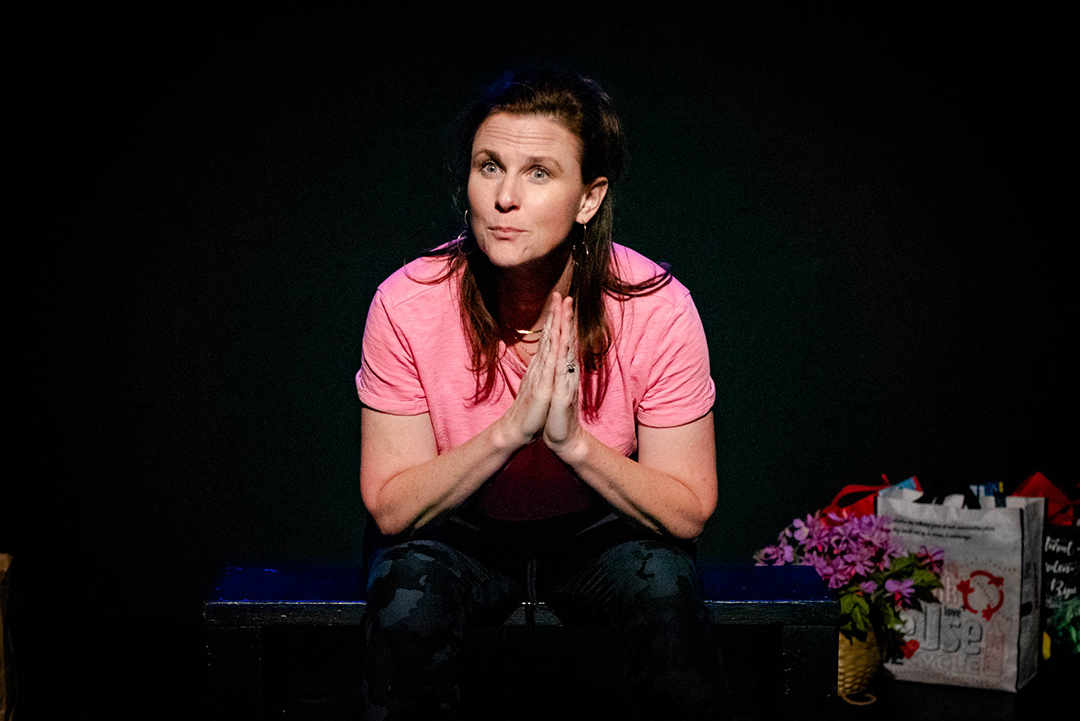
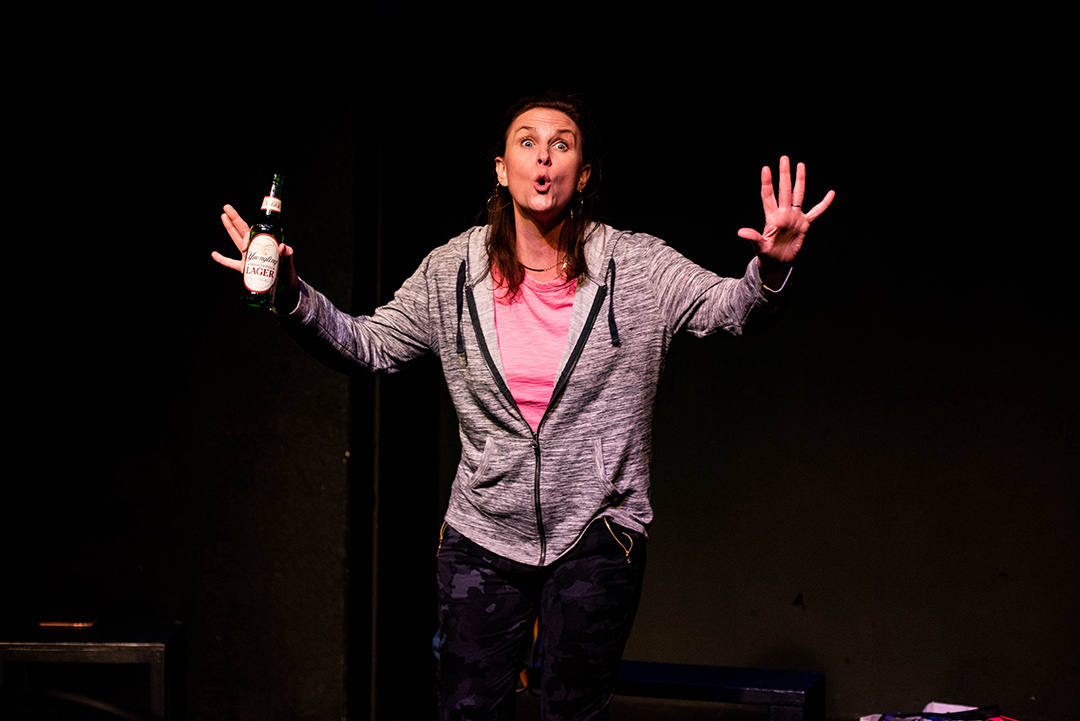
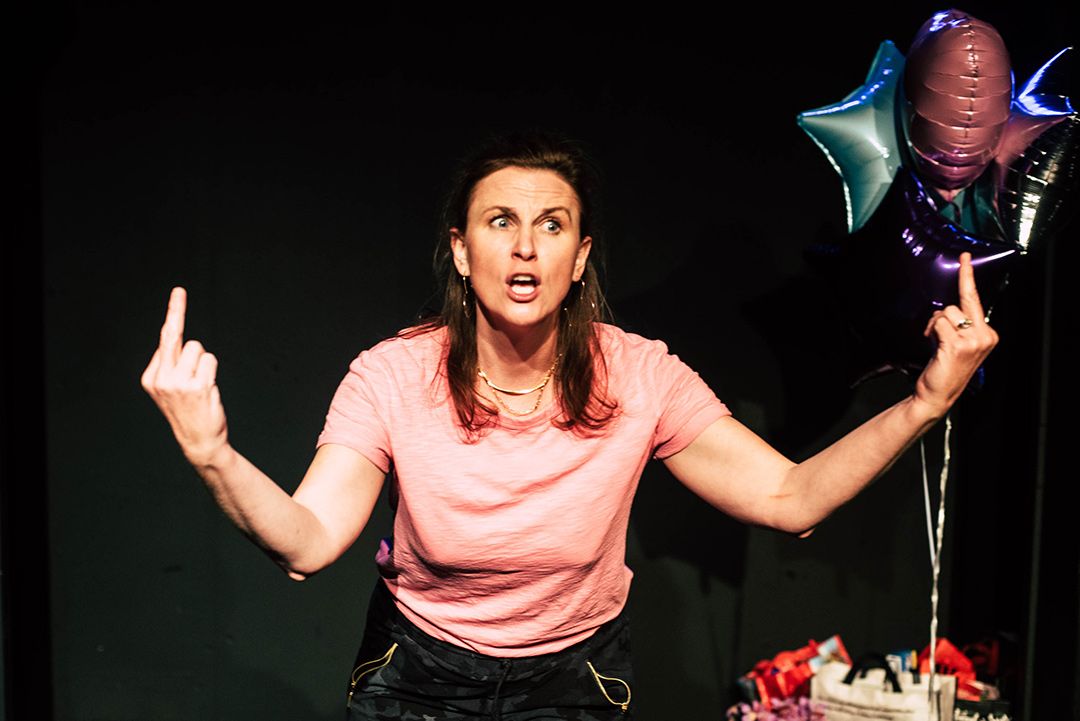
Yes there’s this hard exterior, but it’s all heart. And that’s the show, she’s all heart and she doesn’t know how to express things. So it comes out as either really pissed off…. and that’s a theme in the show as well, there’s the theme of familial cycle which is everything that keeps cycling through the neighbourhood is changing again, everything is going to change all the time, and are you going to remain the same? Or are you going to change with it? And another one is that we never get to watch a woman work through her anger issues. It’s not nice, it’s not likeable, but I think because of how funny she can be and it’s fun to watch her go through it, so I think it is relatable. I was wondering about taking it to the Edinburgh Fringe and wondering what’s going to translate, what’s gonna be lost. But I keep thinking about the show Stones in their Pockets, you know that play?
I do know that play, my friend was in it.
It’s a two hander in a small town in Ireland. Two guys play about 150 different characters. I’ve seen that play at least three times and I don’t understand half of what they’re saying (laughs) and I love that play, I love it, it so cool, it’s like you get to go to this really unique place with these unique people. And I play multiple characters in my show too and they are all from that neighbourhood, so it’s interesting to see all these different people who all exist in this one space., so I’m hoping it’s got that Stone in their Pockets [feel]. Maybe I’m like giving myself a little too much credit by comparing it to Stone in their Pockets, I love Stone in their Pockets, but maybe I can say that’s the goal.
For an actor acting is reacting, but you’re on stage on your own, it must be terrifying. But does that give you a unique connection with the audience?
You know it’s funny, I’ve had an aversion to doing a one woman show forever (laughs). I think I was like, ‘I can’t just stand there by myself.’ Like there’s some kind of ego thing that I couldn’t reconcile within myself. But also I love being part of an ensemble, standing in the wings when someone else is shining and getting to peak out and see. I love being on stage making eye contact and having the experience with another person up there. So the solo show which is brand new to me; was and continues to be fully terrifying, but I think the device that I used in the show has helped make the audience my ensemble. So I come in, I have a prologue and epilogue to the story. I go to the audience a lot, they’re my new neighbours and they’re all hanging on their stoops and I sit down and hang on my stoop with them and get to know the fancy hipster neighbours that have moved in. And I go to them throughout the show and relate what’s going on with my life; and they talk back sometimes and it’s actually really funny when they’re a bit raucous. So it has completely changed by relationship to the audience, I think before doing this show I would be terrified to make eye contact and break the fourth wall with audience members. I would look passed them (laughs) and now I’m hungry for the eye contact. If they are not giving me anything, I’m like, “Come on, we gotta connect, this is what we’re here to do.” So it’s been really interesting and really fun, truly, I can say fun experience to connect with the audience in this way.
“It’s about a woman who is trying to remain authentic to herself despite inevitable change.”
On camera less is more, it’s very technical, it’s about hitting your marks, it’s a director’s medium, where in theatre you have an audience to project to. So how does that effect your performance and how you do you maintain being authentic and contained without being too jazz hands if you know what I mean (laughs).
Yes! Yes! (Laughs) That’s a balance I’m still working to find. I think that especially because there’s a lot of jokes in the show, I don’t ever want it to not ring true or that I’m reaching or anything like that. It really is something you discover in being present in the moment, because there’s no way to know how the audience is going to react. So sometimes they want you to be jazz hands and over the top and they love it, and they’ll tell you so sometimes (laughs). They’ll talk to you, or whistle, or whatever. And there’s other audiences where I’ve come in and they’re so quiet and I’m like, ‘Oh no they hate it.’ (Laughs.) Which is something I’m learning to do. Don’t fill the silences with the negative thoughts (laughs) because I’ve had audiences that are so quiet and at the end they stand up. It’s like, “Oh they loved it. Oh, ok?!” So it is a balance that is a constant pendulum swing. “You don’t want to go too far.” So you start to go the other way and you bring it back in and then you try to take it back.
I imagine what’s great for you is that it keeps you on your toes because you’re not just going out and performing, you’re going out and reading your audience and then having to adapt, which I imagine is even more thrilling?
It does, yeah and checking you’ve a good house out there too before the show, if you hear them talking a lot or you have to tell the tech guy, “Hey turn off the background music while people are coming.” Because [when] they’re loud when they’re coming in, you’re like, ‘This is going to be a good crowd.’ (Laughs). You know what’s so interesting is how they react. There’s some very dramatic moments in the show where I’ve had people crying and also people fully laughing because they are uncomfortable, because we’ve been laughing and now something serious has happened. That’s also just interesting as me Katierose to go, “Wow how funny that they laughed at me yelling at my kids.” (Laughs).
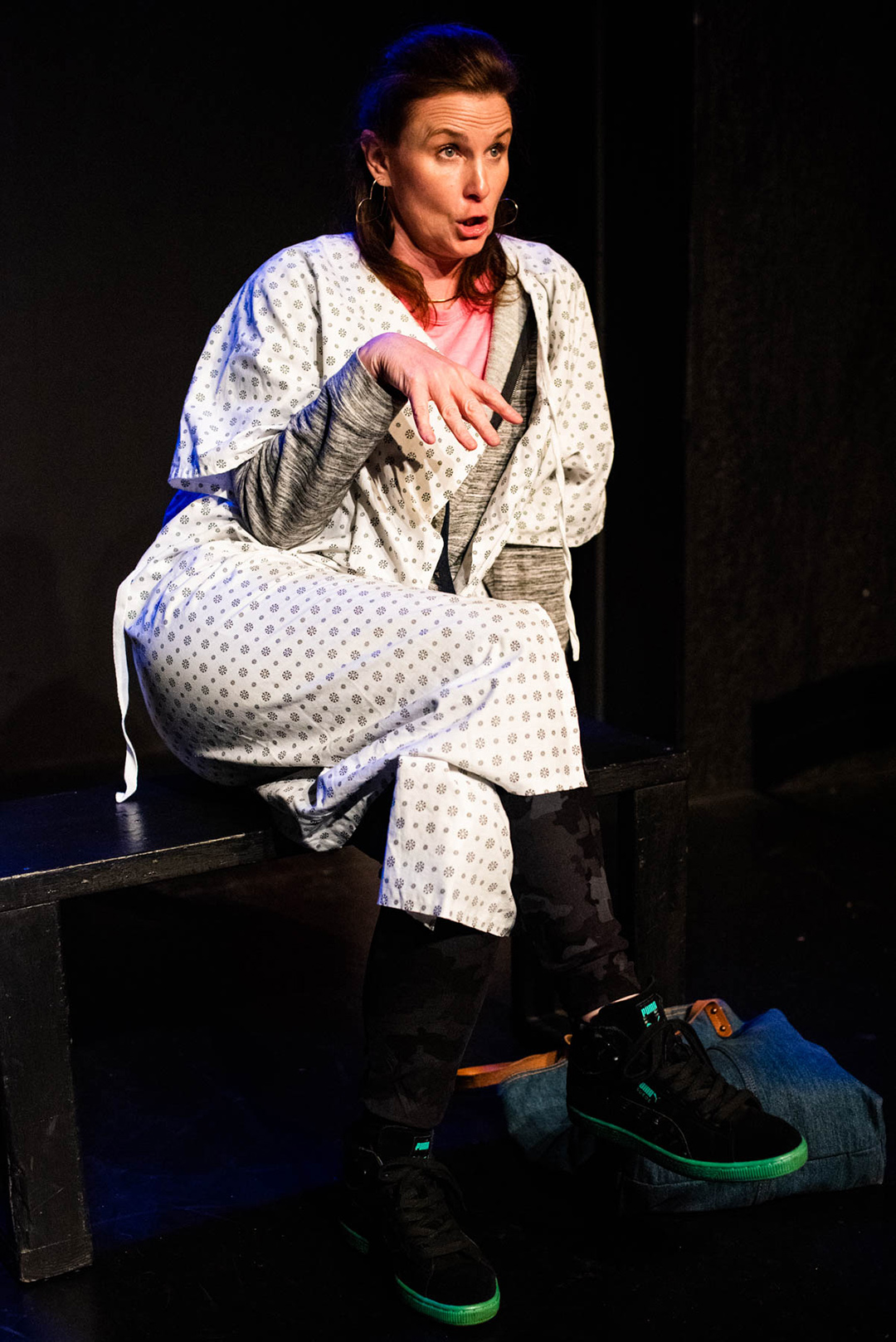
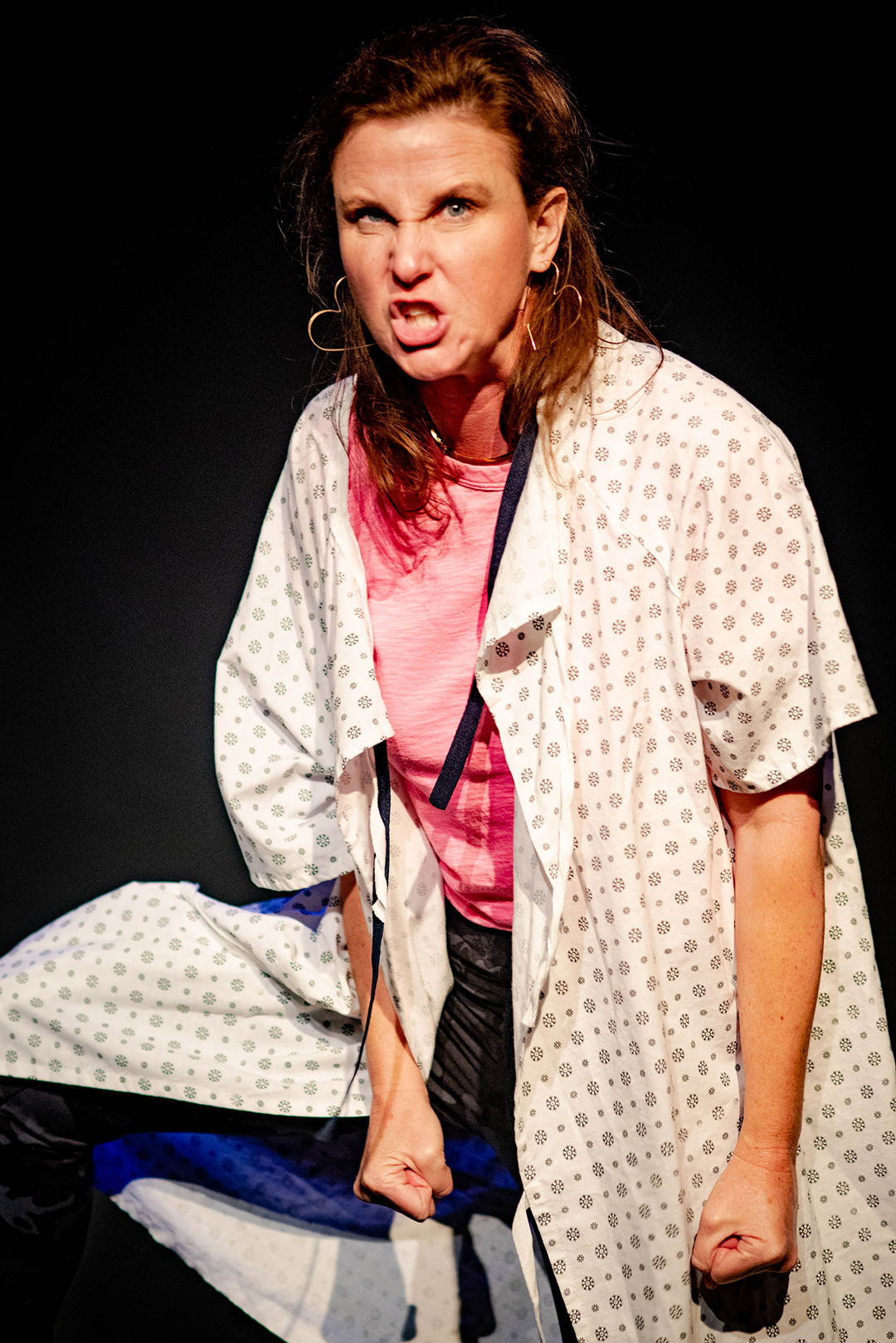
As you said you are bringing the show to the Edinburgh Fringe Festival, how excited you must be about that?
I am so excited. If Omicron hadn’t happened I don’t know if any of this would be happening. Basically after I finished writing the pilot I sent it out for some coverage and I kept getting feedback saying, ‘Oh we love this setting. We love the dialogue.’ Then they would say, ‘This show won’t get made because your main character is unlikeable.’ And I was like, ‘First of all what does that have to do with it getting made? Jerry Seinfeld is unlikeable, Walter White is unlikeable, Tony Soprano is unlikable. So would you be saying this to me if the main character was a man?’ So then I said: “Who are you picturing, were you picturing Kristen Bell? Were you picturing Melissa McCarthy? She’s still unlikable?” So to me it was, ‘I have to show them!’ And so in the fall of last year I was like, “I want to figure out how put this on stage, so I can show what I mean, that she’s fun, and she’s not even not unlikeable, she’s loveable and relatable.” And so I did a little workshop and I was like, “Ok well maybe in the New Year I’ll do a little run.” Do two weekends or something. (Laughs). Then Omicron happened and I was back home locked in my house and I thought, “How does somebody go to the Edinburgh Fringe? (Laughs). Google! And I just looked up spaces that I liked and applied, and the first place I applied was Paradise Screen. They made me an offer and I was like, “I think I’m gonna do this.” And from there it was like, “Now I’m going to the Hollywood Fringe.” And I said, “I can’t take this to two big cities and not take it to Philadelphia first.” So I’m going to Philadelphia now.
So I’m so excited about the Edinburgh Fringe, I’ve no idea what to expect. I’m a little worried about my voice because I have to do the show every day and I’ve also heard there’s quite a bit drinking happening (laughs). So I want to be a responsible artist and make sure I take care of my voice and my throat during that time. But I am so excited, I’ve already bought tickets to a few other shows. And I’ve met a lot of other artist coming from LA that are going to the Edinburgh Fringe and so this interesting network of people and creatives, go getters, people who just leap and hope for the net to appear. I’m so excited to be inspired to get to do my show every day. To just be a creative being with a space filled with other creative beings, I mean I’ve already decided it’s gonna be great. so that means it’s gonna be great (laughs).
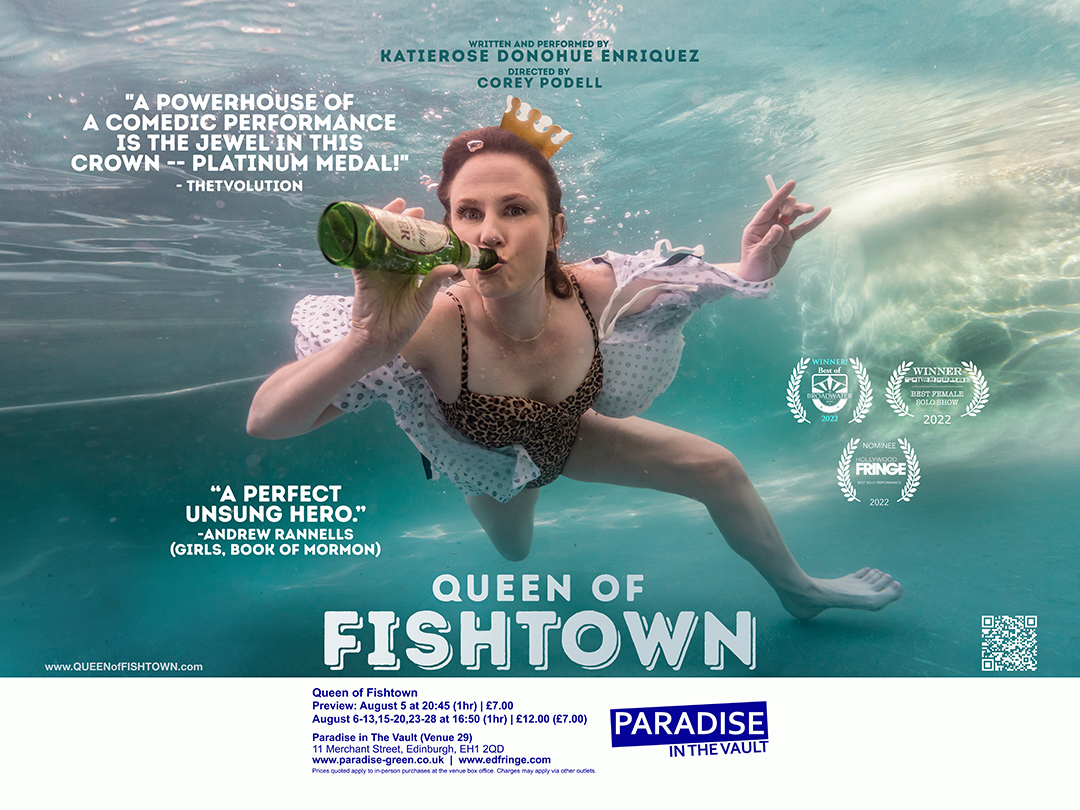
Queen of Fishtown runs at the Edinburgh Fringe Festival from the 5th – 28th August 2022.
Buy your tickets here
Queen of Fishtown Official Website
Credits
Photographer: © Brian Guido
Production Stills: © Annie Lesser, Underwater Stills: © Gervel Sampson
With special thanks to JadeEast PR
Queen of Fishtown - Official Trailer
Claire Bueno
Claire Bueno is a film journalist, presenter and interviewer, having moderated BAFTA, Royal Television Society (RTS), Women in Film and Television (WFTV), and Apple Store Q&As and hosted Comic Con panel talks. Claire is the founder of Premiere Scene Magazine and has had the privilege of interviewing esteemed artists including Tom Cruise, George Clooney, Brad Pitt, Sir Anthony Hopkins, Sigourney Weaver, Emily Blunt, Samuel L Jackson, James Cameron and Andy Serkis.
As a media coach Claire works with leading personal publicists, HBO, Netflix, Sky, ITV, Penguin Random House, the BFI, DDA, MacMillan and Premier, offering practical coaching sessions and safe environment for talent to perfect their interview technique before facing the press. She has extensive experience working with emerging and seasoned professionals and where English is not their first language.
Additionally, Claire is the producer of the critically acclaimed feature documentary CLEANIN’ UP THE TOWN: Remembering Ghostbusters and the upcoming TOO HOT TO HANDLE: Remembering Ghostbusters II.
